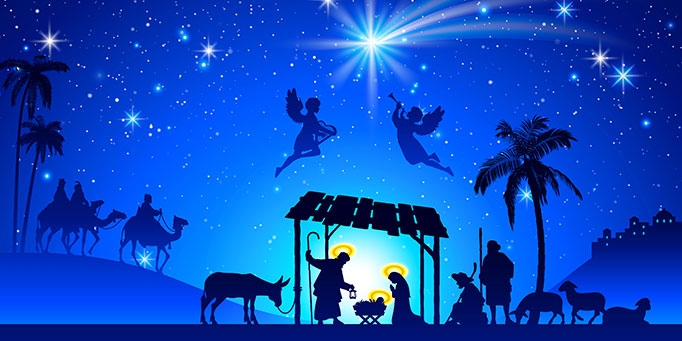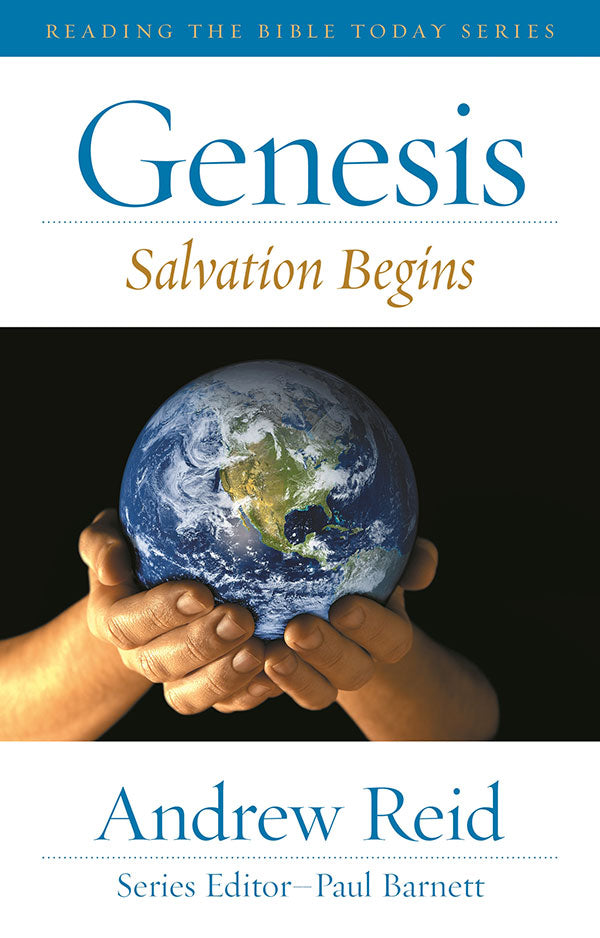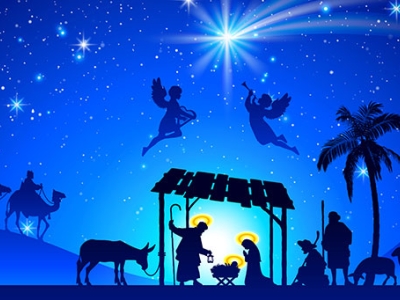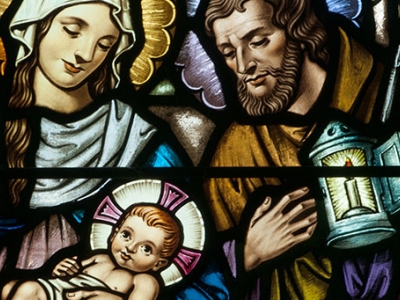
Nativity notes: Bethlehem
A ‘cheat sheet’ for answering kids’ Christmas questions.
At Christmas time, the little town of Bethlehem (literally ‘the house of bread’) gets a moment in the spotlight. But what’s so special about this rural town just outside Jerusalem? Why did Jesus have to be born there?
When King Herod asked the Jewish leaders where the Messiah was to be born, they answered him with a quote from Micah 5:
‘But you, O Bethlehem Ephrathah
who are too little to be among the clans of Judah,
from you shall come forth for me
one who is to be ruler in Israel,
whose coming forth is from of old,
from ancient days.
Therefore he shall give them up until the time
when she who is in labour has given birth;
then the rest of his brothers shall return
to the people of Israel.
And he shall stand and shepherd his flock in the strength of the Lord,
in the majesty of the name of the Lord his God.’ (Micah 5:2–4)
If we look back through the history of this unassuming town, we begin to see more clearly why the Messiah had to be born there.
Judah’s blessing
Bethlehem was located in the region of Judea, which is Greek for Judah. This area had become part of the inheritance that God gave to the Israelite tribe descended from Jacob’s son of that name.
When Jacob blessed his sons before he died, this is what he said to Judah:
‘Judah, your brothers shall praise you;
your hand shall be on the neck of your enemies;
your father's sons shall bow down before you.
Judah is a lion's cub;
from the prey, my son, you have gone up.
He stooped down; he crouched as a lion
and as a lioness; who dares rouse him?
The sceptre shall not depart from Judah,
nor the ruler's staff from between his feet,
until tribute comes to him;
and to him shall be the obedience of the peoples.’ (Genesis 49:8–10)
Judah’s descendants were destined to be the rulers of Israel, as symbolised by a lion. They would always hold the ruler’s sceptre until the day when all nations would acknowledge their King.
A baby in Bethlehem
The book of Ruth, set in the time of the judges, introduces us to one family from the tribe of Judah. A famine had forced them to flee to Moab where tragedy struck: the husband and two adult sons died, leaving behind the widow, Naomi, and her daughter-in-law, Ruth. In their destitution, Naomi and Ruth returned to their hometown—Bethlehem! There, God redeemed their family through a godly relative, Boaz, who agreed to marry Ruth.
The final verses of the book tell us that Boaz and Ruth had a son, Obed. Eventually, he would become the grandfather of King David.
The greatest ruler of Israel would come from the town of Bethlehem of the tribe of Judah. That’s why it came to be known as the ‘city of David’ (Luke 2:4). (Confusingly, Jerusalem is sometimes called this too.)
Eternal kingdom?
King David was a descendant of Judah and fulfilled the blessing of rulership that Jacob had given to his son. But God promised David even more, saying, ‘your house and your kingdom shall be made sure for ever before me. Your throne shall be established for ever’ (2 Samuel 7:16).
And yet, following David’s rule, his kingdom experienced division, decline and ultimately exile. By the time of Jesus, the throne of David sat empty. As the result of various conflicts, kings from other tribes and nations had taken over the rulership of Judah.
Jesus’ family tree
It’s not surprising that the New Testament opens with a family tree. Matthew (and later Luke) shows that Mary’s husband Joseph was a descendant of both Judah and David. He had to register for the census in Bethlehem, ‘because he belonged to the house and line of David’ (Luke 2:4).
The gospel writers are showing us that Jesus was born into the house of David in the tribe of Judah, in the very same town where David was born (Matthew 1:1). They are showing us that David’s greater son, the eternal King prophesied by Micah is here. Many people who encountered Jesus recognised this and called him the Son of David (for example, Matthew 21:9).
What kind of king?
Jesus’ kingship was never recognised by the political leaders of his day. His kingship did not end in political conquest and earthly glory. It ended in a shameful, bloody execution on a Roman cross, to the jeers and taunts of those who stood around. The sign above his head was meant in mockery: ‘Jesus of Nazareth, the King of the Jews’.
But what looked like defeat was in fact the greatest victory. As Jesus died, he defeated not an earthly power, but all the spiritual forces that stood against humanity: sin and death and Satan. Three days later, Jesus rose again, showing that he had triumphed over these enemies forever. He now invites all people to share in his spiritual victory.
He is worthy
Revelation chapter 5 describes a heavenly scene: God is holding a scroll that is sealed seven times, but no-one can be found who is worthy to open the scroll and reveal its message. Then the distraught onlooker John is told: ‘Weep no more; behold, the Lion of the tribe of Judah, the Root of David, has conquered, so that he can open the scroll and its seven seals’ (Revelation 5:5).
The worshippers then break into a song of praise
‘Worthy are you to take the scroll
and to open its seals,
for you were slain, and by your blood you ransomed people for God
from every tribe and language and people and nation,
and you have made them a kingdom and priests to our God,
and they shall reign on the earth.’ (Revelation 5:9–10)
So why was Jesus born in Bethlehem? Because he was the promised Lion of Judah, the eternal Son or Root of David, who would rule through sacrifice and welcome everyone who believes into his heavenly kingdom. It may be a ‘little town’, but it had a big part to play in the story of salvation.
---
Harriet Connor is the Content Editor for Growing Faith and the author of Families in God's Plan: 12 Foundational Bible Studies and Big Picture Parents: Ancient Wisdom for Modern Life (Wipf and Stock, 2017). She lives on the Central Coast of NSW with her husband and four sons.

Genesis
In Genesis - Salvation Begins, Andrew Reid gives readers a framework for appreciating the Old Testament as Christian scripture. The book of Genesis was written for a world of fear. It was a world filled with gods and deities of all shapes, sizes and dispositions. We no longer worship the sun, the stars and mythical deities. Yet although the modern gods are largely material, social and ideological, they still pose threats.
For more articles from Growing Faith, subscribe to our monthly e-newsletter.
To hear about the latest books and resources from Youthworks Media, subscribe here.







